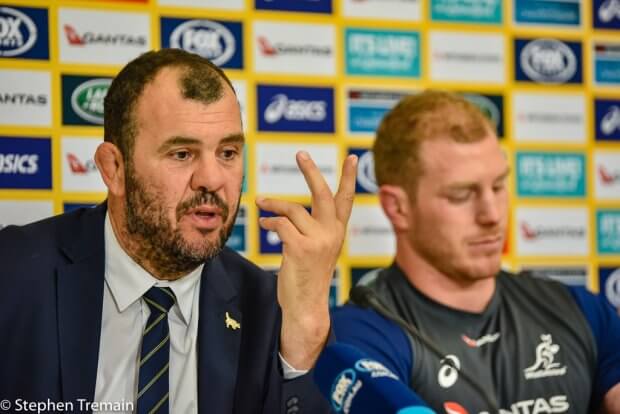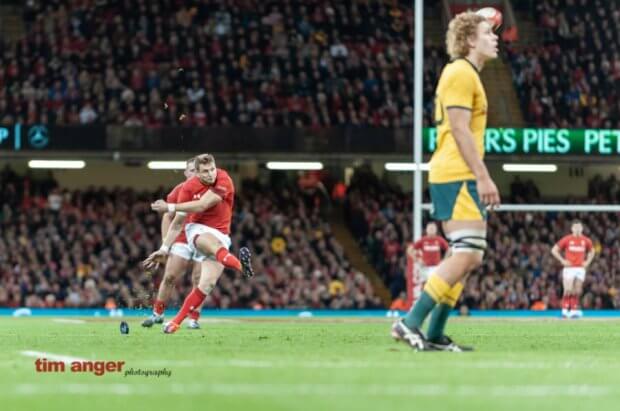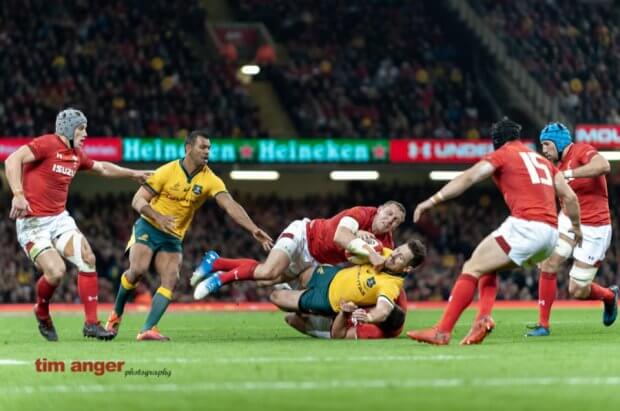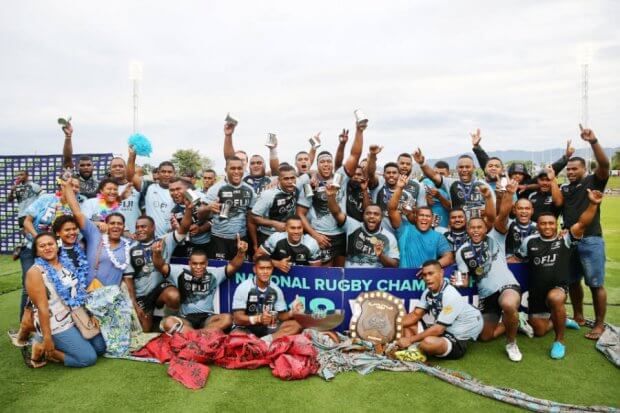So welcome to the first of the final three instalments of the Tuesdays Top 5 for 2018. These three instalments are looking at things that really have no real bearing on anything, like how the run up to the RWC is tracking (according to verse 7, part IV, the Gospel of Cheika). Unfortunately, episode one seems to have us headed down the track of the Star Wars prequels- they offered so much but one is forgettable and the others were a real comedown from the past. So, let’s get to it, short sharp and to the point.
How did we go?
It was interesting to hear pre-game some of the pundits from overseas speculating that there would be tries scored and Wales would need to score 20+ points to be in with a chance. It was a pretty flattering forecast when you look at the Wallabies recent form. Off the back of the Rugby Championship the Wallabies were averaging about 2.6 tries per game, well down on the 4.1 in the 2017 Championship. In reality even the 2018 stat was inflated by the blowout 6 try win against the Pumas in the last round. So even if the Wallabies got lucky and scored their 2.6 try average (remember, this does not include conversions) would it have been enough? Now keep in mind that the Wallabies were kept in the game by Halfpenny missing two easy penalties. In reality the Wallabies 2.6 tries would only have kept things very close if Halfpenny was kicking at his usual standard. So, in reality the Welsh knew that if they could restrict the Wallabies to less than their 2.6 tries, they were in with a red-hot chance. As with the slide in the rankings the Wallabies attack has also been on the decline and the Welsh would have known their defence would be what wins that game (in combination with the Wallabies conceding an average of 9.6 penalties a game) and it ultimately did.
Looking for positives and signs of improvements is hard to find much. Our line out is still struggling at around the 80% mark and scrum is reasonable at around the 90% mark. However, one thing we can say did improve was our defence and tackle success. It improved from the 81% average to 90% this game.
The RWC Pool D arms race
The arms race between Wales and the Wallabies is officially on. With Wales finding the way to win and now both teams being on par defensively it’s all about who can create some attacking capability. Whoever can turn up armed and score tries at the RWC will prevail.
For Cheika his puzzle starts with one of the constants with the Wallabies; the ability to have more possession and territory than the opposition and not really do anything other than playing keepings off. Since 2017 our attack has been regressing and we just can’t seem to find a plan that works. Cheika has played numerous combinations and now is trying the stability theory. But it is undeniable that we are struggling to score. Does he take a chance and mix it up for Italy or stick with the known formula and keep hoping it will sort itself out? If he sticks with the known how do we develop depth. But in there lays a bigger issue. Sure, he has players to “cover” 10, but he doesn’t have a real back up 10.
Gatland also has a challenge. There were glimpses of some attacking prowess but it was infrequent. The hard toil approach is fine but will it be enough and yield the results he needs? One consideration is that he dumbed it down against the Wallabies to keep the defence a priority. Every time they got an opportunity, they didn’t look like they were thinking anything other than taking the penalty and he certainly lauded his sides defence post game. Having Biggar sitting on the sideline for most of the game is one advantage that he does have. That luxury alone would have bugged Cheika.
So, come the RWC the difference between Wales and the Wallabies will be who comes with a functioning attack.
Let’s throw in a wildcard
You know how in some pools for the WC you look and just know who the top 2 teams will be. For example, something would have to go very wrong for New Zealand and South Africa to not be the top two in their pool. Well looking at Pool D, it looks pretty clear that the Wallabies and Wales will be the teams progressing (finishing order is totally up for grabs though!)
But sometimes you get that one team that just like to throw a spanner in the works and mess it up for someone. Last time it was Japan, who beat South Africa leaving them on the same number of wins as Scotland. This year in Pool D that honour could fall to Fiji. Rumour has it Cheika is worried and doesn’t want to give them a hand anymore and risk our Super teams making their players better. Fiji – they can certainly be unpredictable and are being touted by some as the dark horses.
On the weekend Fiji played Scotland, and were thoroughly defeated. But, as they did in the NRC, they got off to a good start and were leading for most of the first half, only trailing by 3 points at the break. The wheels fell off in the second half and Scotland ran rampant, but what happens if in the next 12 months Fiji get their act together, the way the Drua have in the NRC, and become an 80-minute team, fixing their discipline problems while they are at it? Could they genuinely threaten Wales or the Wallabies?
It may be of interest to know that out of the players in the Fijian starting 15, 7 had 10 caps or less going into the match. The combined number of caps on the bench was 42. One player on the bench had 21 caps, the other 21 were spread amongst 7 players (compare that to the Wallabies bench were there were over 400 caps between them). So it looks like they are definitely building. Again I’ll ask, what will they be able to do when they have more experience, more time together and can play for 80 minutes? They take on Georgia next (who are also in our pool) and then France, which might tell us a bit more about what we’ll be facing next year.
Decisions, Decisions
Now let me check Google; 20 June 2016 – Wallabies Stand-in Captain Michael Hooper – wrong decisions when to take penalties against England.
If I were a psychologist, I would put that England series as the reason as where Hooper’s indecisiveness was solidified. In one game he took a penalty late on rather than go for the line and in another he went for the line rather than taking the points. Both ended up with loses. One year on almost to the day and we had the headline of Hooper turning down a penalty shot late on in their loss to Scotland. We all acknowledge that at times it’s a 50/50 call but it’s hard to explain why he seems to pick the wrong way so often.
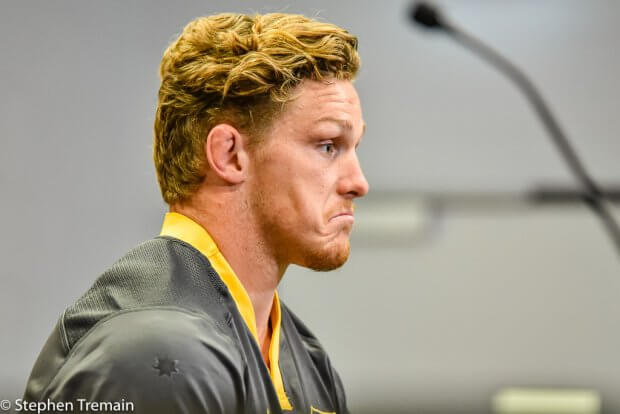
Part way through the NRC season I wrote about the fact that there was hope for Aussie rugby as away from the Wallabies and Super Rugby setups, in the NRC, we were seeing players using rugby IQ after seeing penalty kicks being taken in the NRC. It takes time to understand and acquire the judgement to know when to kick, and when to go for the try. In many instances it’s not just about “that” moment, it’s about “that” moment in the context of the game.
Hooper just simply could be unlucky or a poor judge. But noting that the Wallabies at times seem to be captained by committee and this is a regular occurrence I can’t help but think we may be better off being captained by the coin toss when it comes to time to decide if we take the shot or not.
One thing that I do ponder. We seem to be finding ourselves in the backend of games in this same position quite often. Coincidence? Maybe. Or are we putting ourselves in that position? Aussie rugby has been trained in recent years to shun that position even though in 2003 we saw how it can win you a RWC. Maybe it’s simply a trained flawed mindset. Either way, do we have a decent enough boot to kick our way to victory?
Highlight of the weekend
My highlight of the weekend actually wasn’t on the field of any of the matches, but in the commentary box. Now I’m usually the first to complain about commentators. Trust me, I have come very close to destroying a very good TV thanks to the drivel that spills forth from Phil Kearnes. In fact there are very few ex-players that I think make good commentators.
But I sat through the entire Wallabies v Wales match and not once did I find myself wishing that the commentators would just shut the f%^& up. I was pleasantly surprised when James Horwill said on numerous times that he agreed with the referee when calls were made against the Wallabies. Kearnes had led me to believe that almost all calls against the Wallabies were wrong! But Horwill was very even in his commentary and stuck to commentating on the action, not giving opinions about the referee. There was no bias one way or the other and he actually sounded like he knew what he was talking about.
So refreshing to hear from an Aussie commentator, especially one who is an ex player. Hopefully we will get more of it outside of these few test matches.
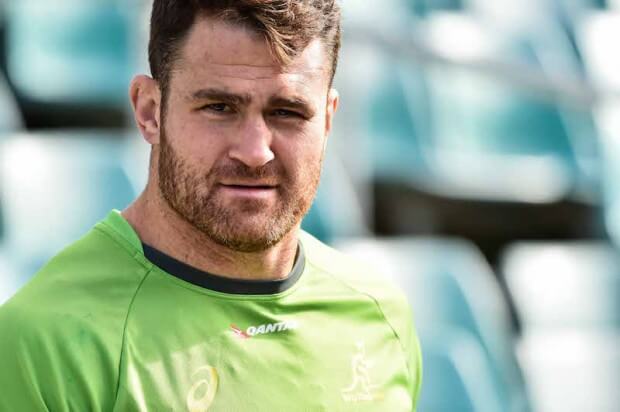
This one goes out to Cheika
We’re flashing back now to the time of song requests on the radio. You know, way back in the day when you rang the radio station (no twitter or email!) and asked them to play a song dedicated to that ‘someone special’?
Well we received a special song request this week – the powers that be at RA have asked for this special dedication to the one and only Michael Cheika.
Enjoy.

